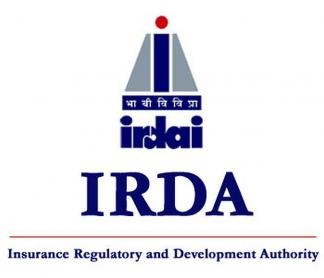`The CBRs have been getting significant amount of premiums from India and their share in the Indian reinsurance market is increasing. It is now felt necessary to ring-fence the interests of Indian insurers to maintain their ability to meet obligations towards policyholders in India,” said the IRDAI
Minimum amount of collaterals will be 50 per cent of the premiums ceded by the insurer to a CBR
These guidelines will be applicable for all the reinsurance placements with CBRs by insurers from India, for reinsurance programs for FY 2025-26 onwards
Hyderabad:
The Indian Insurance regulator IRDAI, in a bid to push overseas reinsurers to set up operations in India, particularly in the International Finance Services Centre(IFSC) in Gandhinagar based GIFT City, and to check outflow of reinsurance business to unregulated entities, Cross Boarder Reinsurers (CBRs), is planning to unveil a set of new regulations, mandating collaterals from them, to be implemented from FY 2025-26.
At present, around 300 registered CBRs with the IRDAI, who are based in overseas markets, compete with state owned GIC Re, Foreign Reinsurance Branches(FRBs), set up by global reinsurance giants, to provide reinsurance covers to Rs 2.56 trillion general insurance market, through brokers, at a much cheaper cost as they do business from their local offices.
The size of the Indian reinsurance market currently is around Rs 70,000 crore, out of which CBRs transact business of around Rs 12,000 crore.
“The CBRs have been getting significant amount of premiums from India and their share in the Indian reinsurance market is increasing. It is now felt necessary to ring-fence the interests of Indian insurers to maintain their ability to meet obligations towards policyholders in India,” said the IRDAI.
The new proposed regulations- Guidelines on collateralized re-insurance transactions for placement of reinsurance business with Cross Border Re-insurers (CBRs)-’ by the IRDAI, on Tuesday, has now mandated that the insurer(cedant) placing re-insurance business with CBRs will be responsible for collecting the collateral for such placement.
The collateral will be either in the form of irrevocable Letter of Credit (LC) from the CBR or premium / funds withheld by the ceding insurer.
In case of LC, it will be issued through any IFSC Banking Unit (IBU) in GIFTIFSC or a scheduled commercial bank regulated by the Reserve Bank ofIndia,
The insurer may choose to accept such LC either in Indian Rupees or in any freely convertible foreign currency.,
The amount of LC has to be linked with reference to the aggregate of outstanding claims liabilities and IBNR(Incurred But Not Reported) reserves of the ceding insurer for re-insurance contract or arrangement with the concerned CBR.
In case of Premiums/ Funds withheld-
– the premiums/ funds withheld from each CBR shall be identified, accounted for, kept and invested separately from the funds of the insurer,
– the investment income, if any, on such withheld funds shall be credited to such fund(s),
– the minimum amount of premium/ fund withheld shall be 50 per cent of the premiums ceded by the insurer to a CBR.
For a CBR with A- or above from an international rating agency Standard or Poor’s or equivalent, minimum amount of collateral (aggregate of outstanding claims liabilities and IBNR reserves) will be 80 per cent while for CBRs below A- rating it will be 100 per cent.
The insurer will release such collaterals as specified in the new regulations if all the liabilities of the concerned CBR under re-insurance contract(s) are fully extinguished.
If the cedant is satisfied that part of the liabilities of a CBR under the re-insurance contract are likely to continue, it may release the collateral as given by the CBR after making adjustments for any amount that it determines should be kept available for the purpose of meeting claims in respect of re-insurance contracts entered into by the CBR.
Every ceding insurer shall furnish a confirmation regarding compliance with the collateral requirements as indicated in these guidelines, based on the reinsurance program as approved by its Board of Directors or the executive committee. The ceding insurer will not be permitted to take credit of the collaterals held by it, for the purpose of determining the available solvency margin.
The new regulations would further improve the resilience of the Indian insurance sector, and to prepare for the future growth, said the IRDAI which had earlier relaxed the capital requirement of an overseas reinsurance player to Rs 50 crore for establishing its operation in India.
IFSC, for any foreign reinsurance player, doesn’t mandate any separate capital requirement and entity’s capital in its home country serves that purpose.
The IRDAI has issued an exposure draft of proposed guidelines and has sought comments from the stakeholders in the next 15 days.
Commenting on the new proposed regulations, Satyendra Shrivastava, senior partner, Consortia Legal said, “The government and the regulators have been looking at introducing measures to encourage CBRs to participate onshore in India and collateral obligations for CBRs is being seen as one of such measures.”
“Letter of Credit or funds withheld related compliances may be onerous for Indian cedants. In fact, this is the second attempt of IRDAI to propose collateral obligations upon CBRs in the last 18 months. This is only an exposure draft at this stage. If it gets implemented as proposed, then CBRs that want to do business in India will have to explore options for onshore presence i.e. either as FRBs or IIOs,” he elaborated.
In various jurisdictions around the world, many reinsurance transactions are backed by collaterals to mitigate counterparty default risk in respect of the reinsurers. The amount of collateral required to back reinsurance transactions depends on the type of reinsurance and the reinsurer’s creditworthiness, said the IRDAI.
It is important to note that the practice of collaterals requirements not only protects the interest of the policyholders and insurers but also fosters confidence in the market, attracting reinsurers for promoting a healthy and robust insurance ecosystem, emphasised the Indian insurance regulator.

